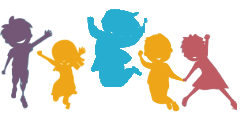#83: What’s the best way to talk about food and nutrition at school?
with Gwen Kostal, RD
In this episode we discuss…
What is food literacy
How to teach food and nutrition knowledge in schools
How do we know what’s appropriate for different ages
How diet culture creates food fear
What is scaffolding
Are we over-teaching nutrition
When is it appropriate to teach about nutrition
How can these conversations contribute to eating disorders
Why guidelines don’t work for everyone
How can school curriculums get a body-positive boost
How to center food not nutrition
How food is related to social justice
How does this affect neurodivergent kids
How to take back the term healthy eating
We've talked about the well-meaning, yet potentially harmful messages kids hear about food, nutrition, and health in schools...but can we offer more than complaints and concerns? If we're lucky enough to have (or be!) teachers and school administrators who are receptive to making changes, where can we send them for practical, impactful guidance? One place is @Dietitians4teachers, the instagram account run by registered dietitian, Gwen Kostal. Tune in for tons of actionable strategies, compassionate guidance, and an innovation session where Gwen and Zoë noodle over how we can best help school professionals embrace protective, food neutral, food literacy frameworks.
Gwen Kostal is a Canadian registered dietitian and the owner of Dietitians 4 Teachers. Dietitians 4 Teachers started in 2020 to support educators with a critical piece of unlearning: the need to remove diet culture and change the way they teach and talk about food and nutrition in classrooms and around students.
Connect with Gwen on Instagram, Facebook and her website.
Resources mentioned or recommended:

